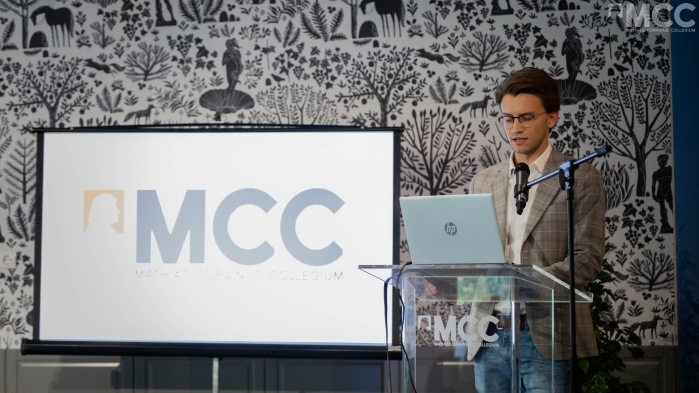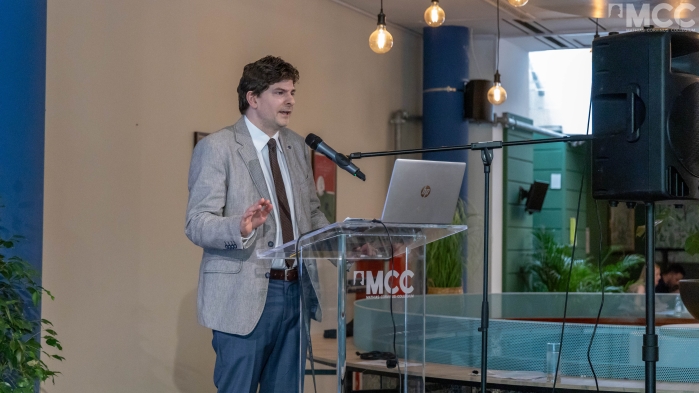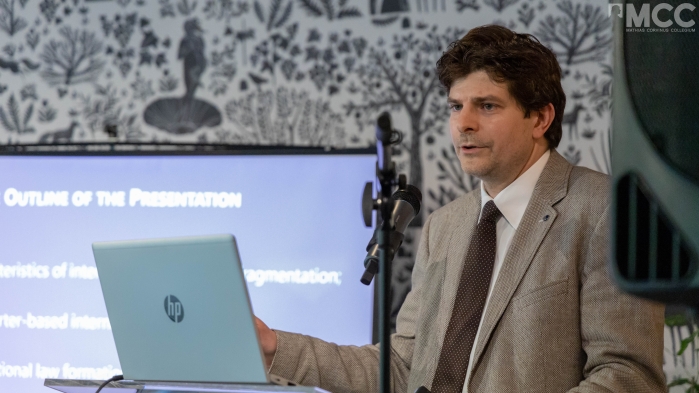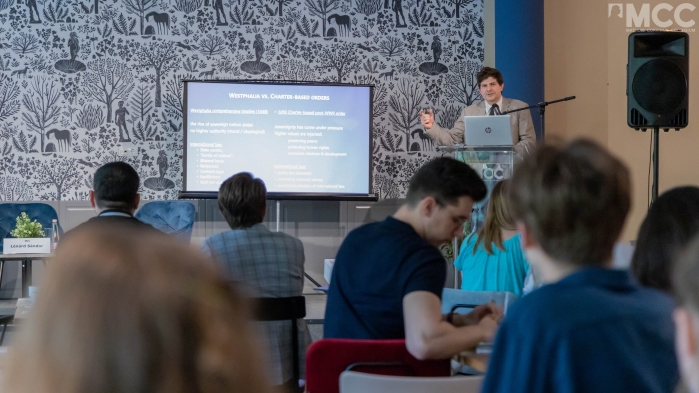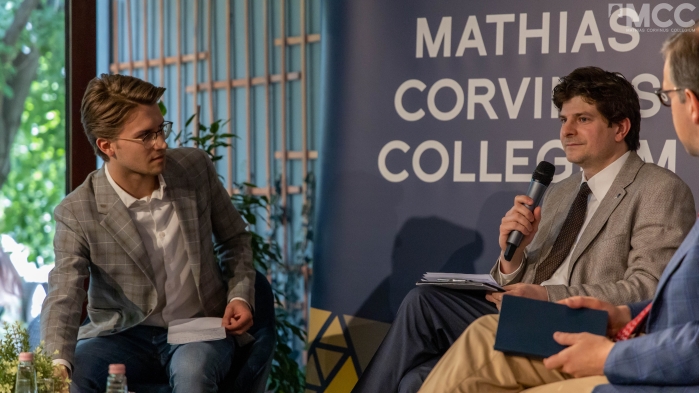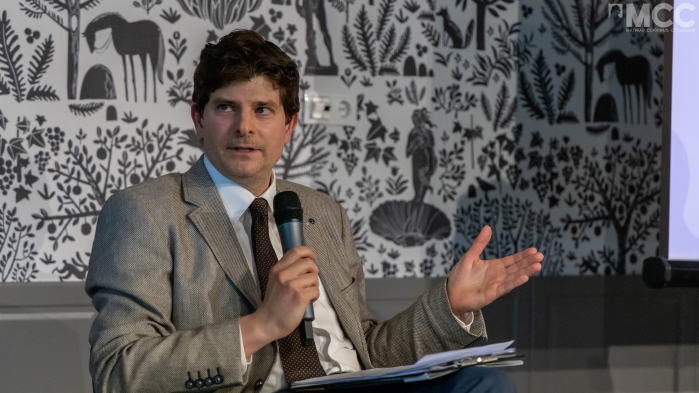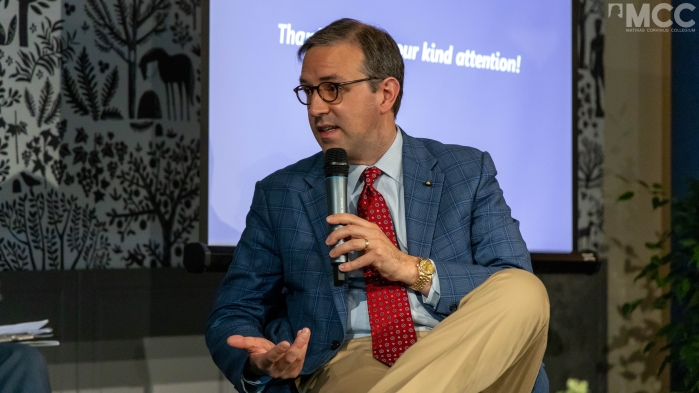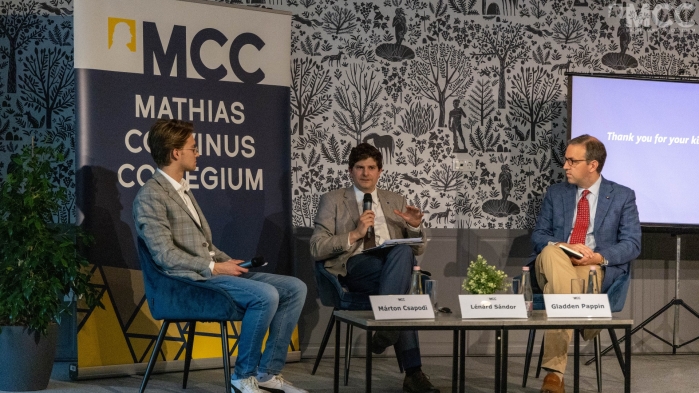Reading time: 2 minutes
The second speaker of the special MCC Lunch Talks series of May was Lénárd Sándor, PhD, lawyer, economist, head of the MCC Center for International Law.
Along the special edition of MCC Lunch Talks throughout May, the floor is given to MCC's new academic colleagues leading the new MCC Centers. In his presentation on “The Multifaceted Nature of International Law”, Lénárd Sándor introduced the unique characteristics and the dynamics of the formation of international law as well as some of its current controversies along with its fragmentation and complexity.
The lecture highlighted the shifting relationship between state sovereignty and international law through different historical eras. Examining the sources of international law, Lénárd Sándor pointed out that the subsidiary means for the determination of rules of international law, such as the decisions of an increasing number of international courts, are playing an increasingly important role not only in the application of the law, but also in its evolution and in some cases, they even shape the law. Sándor emphasized that even though the decisions of international tribunals are not, strictly speaking, binding precedents or stare decisis, in several areas of international law, courts almost invariably follow their previous decisions and international lawyers routinely rely on them to support their arguments. Such an evolutionary interpretation of the law by international judicial forums is particularly evident in the law on foreign investment or in the international protection of human rights. Furthermore, it is also true for the case law of the Court of Justice of the European Union, which has a significant impact on the development of the law of the European Union. The growing role of international tribunals in shaping international law can undermine the consensus among states that underpins both the international law formation and the court proceedings.
The moderators of the Lunch Talks were Gladden Pappin, visiting fellow at MCC and Márton Csapodi, member of the MCC Center for Constitutional Policy.
